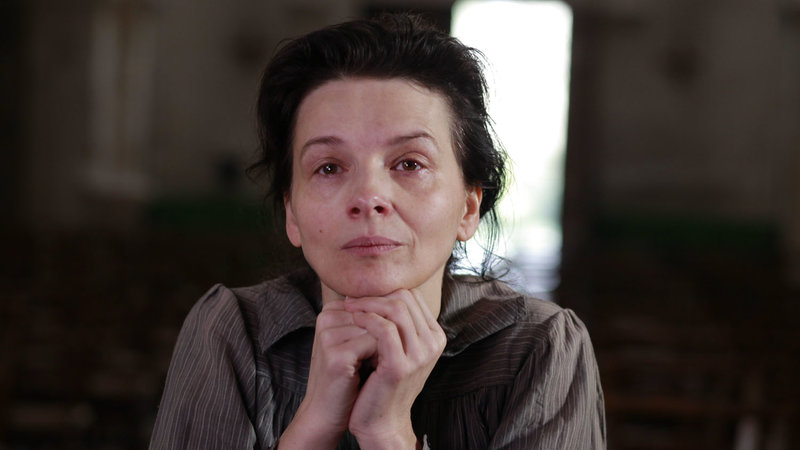In a heartbreaking performance, Juliette Binoche portrays the great French sculptress consigned by her family a century ago to a mental asylum; for reasons neither she nor we can understand.

Juliette Binoche’s incredibly contained performance ranks among the best of her career.
Screened as part of NZIFF 2013
Camille Claudel 1915 2013
In a performance of heartbreaking intensity, Juliette Binoche portrays the tragedy of an artist consigned a century ago to a mental asylum – for reasons neither she nor we can understand. Camille Claudel, previously portrayed on screen in the sumptuous 1988 Isabelle Adjani vehicle, was a French sculptress who enjoyed considerable success in the late 19th century. Once the disciple and mistress of Auguste Rodin, she came to consider him her nemesis. She retreated from society after 1905. Bruno Dumont’s portrait draws on medical records and her correspondence with her brother, the poet, diplomat and devout Catholic Paul Claudel, who was instrumental in her confinement. As the film begins she eagerly anticipates his visit.
“Conveying the intelligence, anxiety, anger and isolation of an artist abandoned by her family, unable to work and forced to live with women mostly far less capable even of surviving than herself, Binoche displays both eloquent expertise and an admirable control wholly in keeping with the simplicity and clarity of Dumont’s uncompromisingly authentic script and direction. (Rightly, if perhaps controversially, the other inmates of the asylum are mostly played by non-professionals who are themselves severely disabled in real life.)
…Sticking to various historical documents, Dumont simply focuses on Claudel’s painful predicament as a woman, an artist, a depressive, and a sentient, intelligent human being. Eschewing metaphor and mysticism (save insofar as his characters adopt them), he has for once given us a film of immense visual beauty, thematic clarity and subtle resonance.” — Geoff Andrew, Time Out